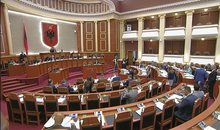
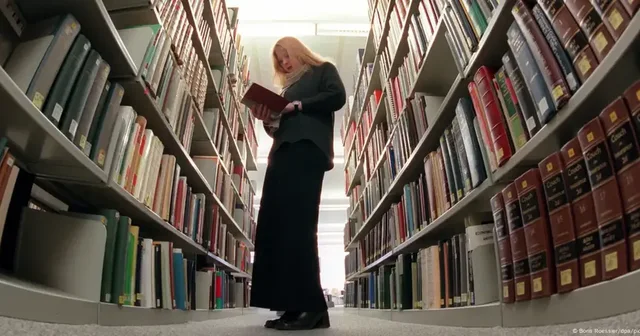
The University of Belgrade is often the preferred choice for students from the Balkans. For Damjan Balkoski, a 29-year-old PhD student in architecture from North Macedonia, the decisive factors for choosing this university for his studies were the international cooperation and the recognition of the university, as well as the fact that in 2017, when he enrolled, in his country, in North Macedonia, there were no accredited doctoral studies in architecture.
"Decisive for me was the collaboration with world faculties of architecture. After completing the studies, it is possible to cooperate with all higher scientific and educational institutions, not only in the region, but also in Europe and beyond." - says Balkoski.
After completing his studies in Belgrade, he expects to quickly complete the procedure for the recognition of his academic qualifications in his country. During his studies he did not encounter any bureaucratic problems and he hopes that the agreement signed for the recognition of diplomas and the recognition of professional qualifications of architects within the Berlin process, which ensures employment in architecture and construction throughout the Western Balkan region, will further facilitate the administrative process.
In the whirlwind of bureaucratic processes
The six countries in the Western Balkans are trying to create a common regional market, where sharing knowledge and skills across borders is one of the biggest challenges. Under the Berlin Process initiative the leaders of the six countries promised that higher education qualifications would be recognized without delay, reducing waiting times and costs.
A total of three agreements have been signed. Two of them, which constitute the Mutual Recognition of Higher Education Qualifications and Professional Qualifications for Doctors of Medicine, Dentists and Architects, have been ratified by all Western Balkan countries, while the third agreement for additional qualifications consisting of Nurses, Veterinarians, Pharmacists and Midwives has only been ratified by the Parliament of Montenegro.
But despite the agreements signed and ratified by all countries, effective implementation has been stuck in the vortex of bureaucratic processes. The relevant Ministries of Education, despite insistence, were not ready to respond.
The agreement signed by the Balkan countries within the Berlin process for the Higher Education System defines common rules and procedures for the recognition of qualifications, based on the Lisbon Convention on Recognition, the Bologna Process and the relevant EU rules. It also states that the degree recognition process should not take more than 14 days and removes existing application fees.
Paper promises and overlaps
According to the Regional Cooperation Council, the agreement applies to public universities and is gradually expected to be extended to private universities, while all countries benefit from the regulated recognition of Doctor of Philosophy (PhD) degrees.
The agreement has been ratified by the parliaments of all countries, but its implementation is still lacking, thus discouraging the free distribution of knowledge between two main groups: academic professors and students.
Despina Tumanoska, from the Institute for Economic and Political Research in North Macedonia, "Finance Think", says that the main reason that creates "deadlocks" in this process is the fact that the signed agreements overlap with existing local regulations and bilateral agreements already signed.
"Their harmonization as well as alignment with EU regulations is necessary: the mutual recognition of diplomas and qualifications must be harmonized with the existing recognition system and have equal treatment in the recognition procedure, regardless of the country where the qualifications were obtained ", says Tumanoska.
Negative impact on future students
This is a factor that has a negative impact on future students who want to start their university studies in any regional country. The most affected are Albania and Montenegro. According to the data of the Ministry of Interior in Albania in 2023, only eighteen study visas were issued for citizens from Kosovo, six for those from North Macedonia and one for Montenegro. No response came from universities in Montenegro.
Besa Kadriu, a professor in Skopje, North Macedonia, sheds light on the bureaucratic obstacles within the Ministries of Education and Science across the region.
"The labyrinthine procedures for mutual recognition continue," she notes, citing long waiting periods for official documentation, especially within the Ministries of Education and Science.
The relevant Ministries of Education in Albania, North Macedonia and Montenegro did not give answers to the above-mentioned issues despite insistence.
As noted by the largest and oldest university in North Macedonia, the University of Saint Cyril and Methodius, the recognition procedure is the link where the process slows down the most.
"The process of recognizing diplomas for the completion of previous educational levels in the Ministry of Education and Science is long and in some cases students cannot register within the specified period and thus continue the procedure before the authorities of the Ministry of the Interior to obtain a visa" - says Kadriu.
More cooperation is needed
The Regional Cooperation Council, an institution created by the European Commission with a focus on helping Western Balkan countries move faster towards a common regional market, says in its 2022 implementation report that "more money and people are needed qualified to improve the level of inter-institutional and intra-institutional coordination of ministries and responsible agencies".
Romina Radonciq, a professor who teaches in Albania and Bosnia and Herzegovina, says that it has been difficult to convert her degree since the rank of Associate Professor is not recognized as a professional rank in Albania and North Macedonia. It is also impossible for him to teach in Kosovo, because the two countries do not recognize each other's diplomas.
"It is very difficult for me to work in an environment that makes it almost impossible for me to exercise my right to teach, for which I have invested with all my might for years," says Radonšić.
To work in the region; an (impossible) scenario
While agreements facilitating the free movement of professionals are lacking in implementation efforts, emigration continues due to slow wage growth and limited job opportunities.
The most recent agreement, which has not been ratified by all countries except Montenegro, includes the professions of nurses, veterinarians, midwives and pharmacists, who will seek to pursue the same profession in Western Balkan countries, with their recognized qualifications. after following studies and training that will last 3 to 5 years.
The training of nurses responsible for general care will involve a total of at least 3 years of study. Meanwhile, vet training includes a total of at least 5 years of full theoretical and practical study, which can also be expressed in equivalent European credits (ECTS).
The training of midwives must include a total of at least one specific full-time training as a midwife that includes at least three years of full-time theoretical and practical study as a midwife of 18 months duration.
Meanwhile, even though the first agreement for graduates in Medicine, Dentistry and Architecture has been ratified by all countries, the Ministries of the Interior in Albania and North Macedonia have not registered any requests for permits for these professions, while the institutions in Montenegro did not respond to the request for data.
The initiative to create a free labor market for professionals has not yet produced concrete results, partly because the average salary in each country is about the same. According to a report by RCC, the economies of the Western Balkans are not very diversified and therefore require more unskilled workers.
The ongoing labor shortage in the region underscores the need for concerted efforts to reform policies and build institutions. As the Western Balkans strive for unity to attract foreign investment and spur economic growth, the journey to a truly integrated regional market is still lacking./DW
Latest news


Trump says he's ready to raise tariffs to 70% on some countries
2025-07-04 22:35:52
Tre shenjat e zodiakut që do ‘pasurohen’ në Korrik
2025-07-04 22:05:09
Gaza War: Hamas Accepts US Proposal for 60-Day Ceasefire
2025-07-04 21:50:10
Autocracy in Albania, Fuga: Governance has gotten out of control
2025-07-04 21:40:51
Meta: Agriculture on credit, the new fraud!
2025-07-04 21:26:39




Vote recount in Durrës ends without changes
2025-07-04 20:12:54
Gas station explodes in Rome, 25 injured (VIDEO)
2025-07-04 20:00:20

These afternoon habits often sabotage weight loss
2025-07-04 19:39:28
Former Arsenal player Thomas Partey accused of rape
2025-07-04 19:24:21
Shepherd disappears without a trace in Delvina
2025-07-04 19:14:31

Bardho gave Zegjine's mandate/Braho: Unfair! It violates the electoral system
2025-07-04 19:01:08


Rapid developments in the Sultanates!
2025-07-04 18:00:06



Italy tightens rules for skateboard traffic
2025-07-04 17:20:18

Unusual for the time, dense fog covers the coast of Vlora
2025-07-04 16:48:01


Accident on the Shkodra-Lezhë axis, one dead and 3 injured
2025-07-04 16:14:19
Albania with fewer requests for asylum and Albanian citizenship in 2024
2025-07-04 16:06:57

Albania last for quality of life, DP: Technical government is the solution!
2025-07-04 15:42:30
Nico Williams says "No" to Barcelona, signs with Athletic Club until 2035
2025-07-04 15:33:35
Fires in the country, four fires are still active, what is the situation?
2025-07-04 15:24:20

Summer brings big changes for these 4 zodiac signs
2025-07-04 15:00:04
Osmani: MPs need to agree to a secret ballot for the Speaker of Parliament
2025-07-04 14:51:09
Serious accident on the Peqin-Elbasan axis, two injured
2025-07-04 14:37:56

GJKKO leaves in force the security measure for the head of the KPP
2025-07-04 13:58:17
Who will replace Ilir Meta and take over the leadership of the PL?
2025-07-04 13:50:36
Berisha: Dismissal of directors in Vlora, another act of 'scapegoats'
2025-07-04 13:41:46




Librazhd/ In a serious psychological state, the young man consumes pesticides
2025-07-04 13:05:07


Weapons trafficked from Kosovo to Albania, two arrested, 8 pistols seized
2025-07-04 12:33:28
Konsumimi i tepërt i çokollatës, ja cilat janë dëmet që shkakton në organizëm
2025-07-04 12:23:35

Fires in the country, 21 fires in the last 24 hours, 4 still active
2025-07-04 12:00:19
WB calls for debt transparency: Albania to publish details of every loan
2025-07-04 11:50:05
Changes in the State Police, new names expected to lead 5 police stations
2025-07-04 11:40:06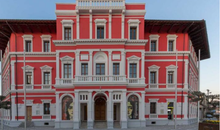
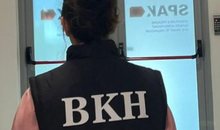
The race for the head of the BKH, the third phase on July 11
2025-07-04 11:20:23

Toxic phrases that show your relationship is in trouble
2025-07-04 11:00:10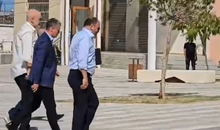

2 brothers arrested in Roskovec, cultivating narcotic plants
2025-07-04 10:38:08

Celebrating his 61st birthday today, Rama is surprised at the pink headquarters
2025-07-04 10:21:46
Suspended from duty 4 days ago, Jonaid Myzyri appears before the Criminal Court
2025-07-04 10:16:27
Heat wave/ 5 deaths in Italy from high temperatures
2025-07-04 10:07:55
Economy slows, telecommunications joins agriculture and industry in recession
2025-07-04 09:58:13

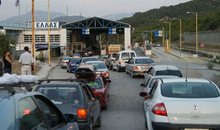
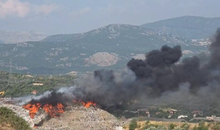
Fire continues at Elbasan incinerator, toxic smoke endangers citizens' health
2025-07-04 09:19:06
The USA celebrates its 249th anniversary of Independence
2025-07-04 09:09:22

After Rama's ultimatum, all directors of the Vlora municipality resign
2025-07-04 08:46:30
Russia, the first country in the world to recognize the Taliban government
2025-07-04 08:37:20
10 facts about the 10th legislature!
2025-07-04 08:21:35
Foreign exchange/ How much foreign currencies are bought and sold today
2025-07-04 08:01:50

Weather forecast for today
2025-07-04 07:36:43
"Don't be afraid", here's what the stars have predicted for each sign
2025-07-04 07:21:48
Morning Post/ In 2 lines: What mattered yesterday in Albania
2025-07-04 07:03:17
Bushati: Zegjineja, a book piloted by Rama
2025-07-03 22:57:30






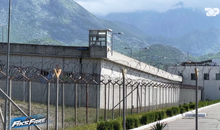

Greece imposes fee to visit Santorini, how many euros tourists must pay
2025-07-03 20:50:37
Don't make fun of the highlanders, Elisa!
2025-07-03 20:43:43
Gunfire in Durres, a 30-year-old man is injured
2025-07-03 20:30:52

The recount in Fier cast doubt on the integrity of the vote
2025-07-03 20:09:03


